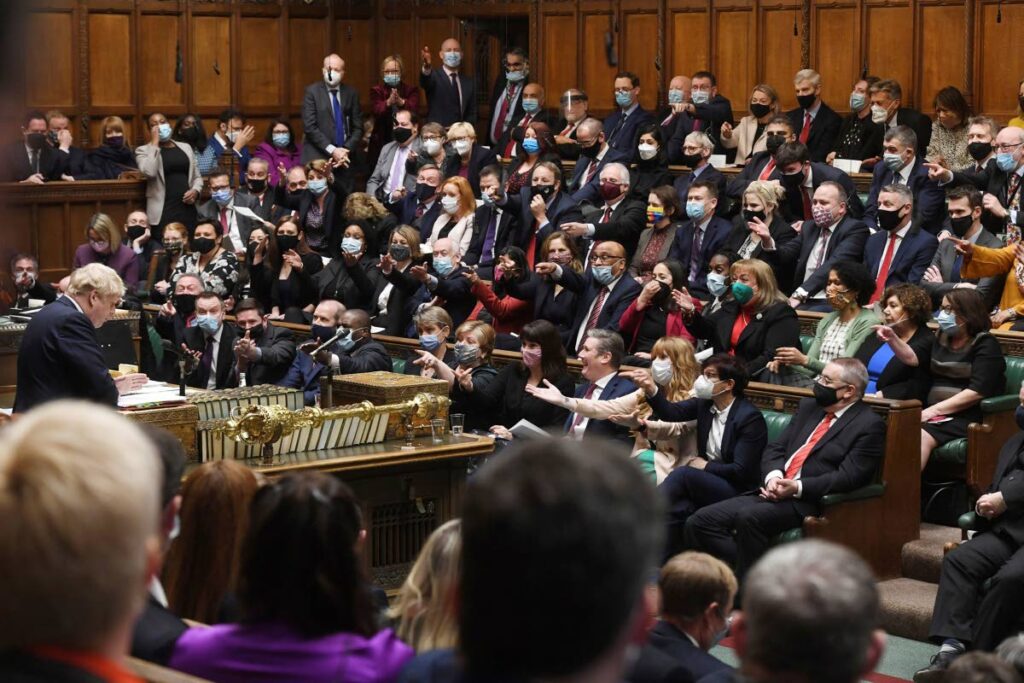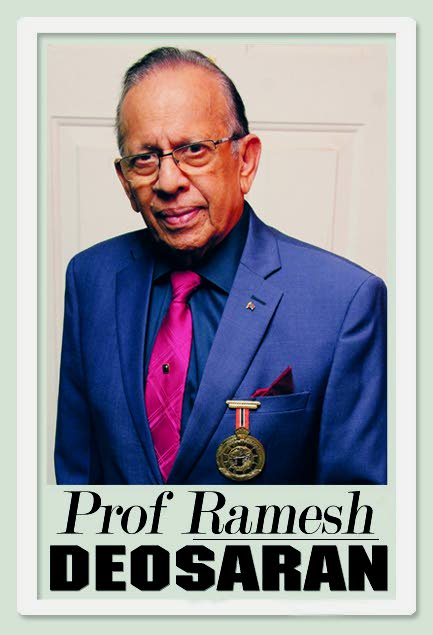‘In the name of God, go’

Democracy was its noisiest last week in the majestic British House of Commons. Prime Minister Boris Johnson, the Conservative Party leader who achieved a landslide victory with 365 seats against the Labour Party’s 202 in the 2019 election, faced his rowdiest opposition since then.
In a “breaking news” report, PM Johnson was accused of allowing 100 guests at a “bring your own booze” gathering at the garden of No 10 Downing Street in May 2020 while the country was under covid19 crowd restrictions.
Dubbed “partygate,” the uproar inside and outside the Commons erupted. Last week, Johnson told reporters: “When I went out into that garden, I thought that I was attending a work event.” Apparently quite ruffled, from head to toe, he told MPs: “I humbly apologise, nobody told me drinks were not allowed during covid lockdown. I was not warned.”
MPs shouted. The Commons was packed: standing room only.
Former adviser to Johnson Dominic Cummings had told the press Johnson “was warned about the risk.” That rubbed salt into the wound.
Opposition Leader Sir Keir Starmer rose, doubting Johnson, and like a number of opposition speakers, called on him to resign. Speaker Sir Lindsay Hoyle had a rough time controlling the crowd of MPs who rose to speak.
Then the man who tried to put the nail in the coffin was former Brexit secretary Conservative MP David Davis, who declared to PM Johnson, “In the name of God, go.” Loud applause from the Labour benches.
The British public, angry over this Boris Johnson “garden party” issue, feels “one rule for some at the top, another rule for others below” is starkly unjust and a violation of public trust.

But it is more. It shows how the British Parliament still strives, as uncomfortable as it may be, to maintain its democratic traditions of transparency and political accountability.
And in fact, since Commonwealth countries derived their parliamentary system from the British, it is expected that these countries should also strive to maintain such traditions. They are proven to serve a healthy democracy. But it depends not only on Parliament. Democracy depends a lot on the role of the free press.
Without the free press, the voices and concerns of MPs in this “partygate” matter would have merely dried up inside the congested Commons. It was a British newspaper that first broke the “news,” possibly leaked by a conscience-stricken whistleblower.
The related issue in the Commons and around Johnson’s political fate is credibility. In the first place, if he is found “lying” to his Parliament, in the British tradition, the one which we also enjoy here, he will be called on to resign. As David Davis hinted, this time, “in the name of God,” he will have to go.
It is one thing for a politician to go on a political platform and be a partisan stranger to the truth. But not in Parliament. And even when the politician brambles and insinuates at the street-corner platform or on television, it is up to citizens to determine his or her credibility. This, too, is the responsibility of the free press, which also faces its own credibility challenges.
So as the Cabinet-appointed inquirer, senior public servant Sue Gray, submits her report at the end of this month on Johnson’s “garden party” matters, and the political wheels begin to turn more viciously, the central issue will be his credibility.
Without reading Ms Gray’s report, one of Johnson’s MPs has already crossed over to the Labour Party, and the Opposition Leader said he will welcome “some more.” Over ten other Conservative MPs have also signed a request for Johnson to resign.
There is little or no doubt that our own party system here is weak in both political accountability and democracy itself. It is a “bottle-necked” system with an embedded top-down dictatorship. Both accountability and democracy itself will be rejuvenated if the voices of correction bravely arise from within the party. Outside pressures for change rarely succeed.
That was how former British PM Teresa May was removed. And that is how, if found guilty, Johnson may be removed. And that, too, is why this column celebrated the recent mild efforts by PNM members Colm Imbert, Stuart Young and Marvin Gonzales. They were good for the party’s credibility.


Comments
"‘In the name of God, go’"